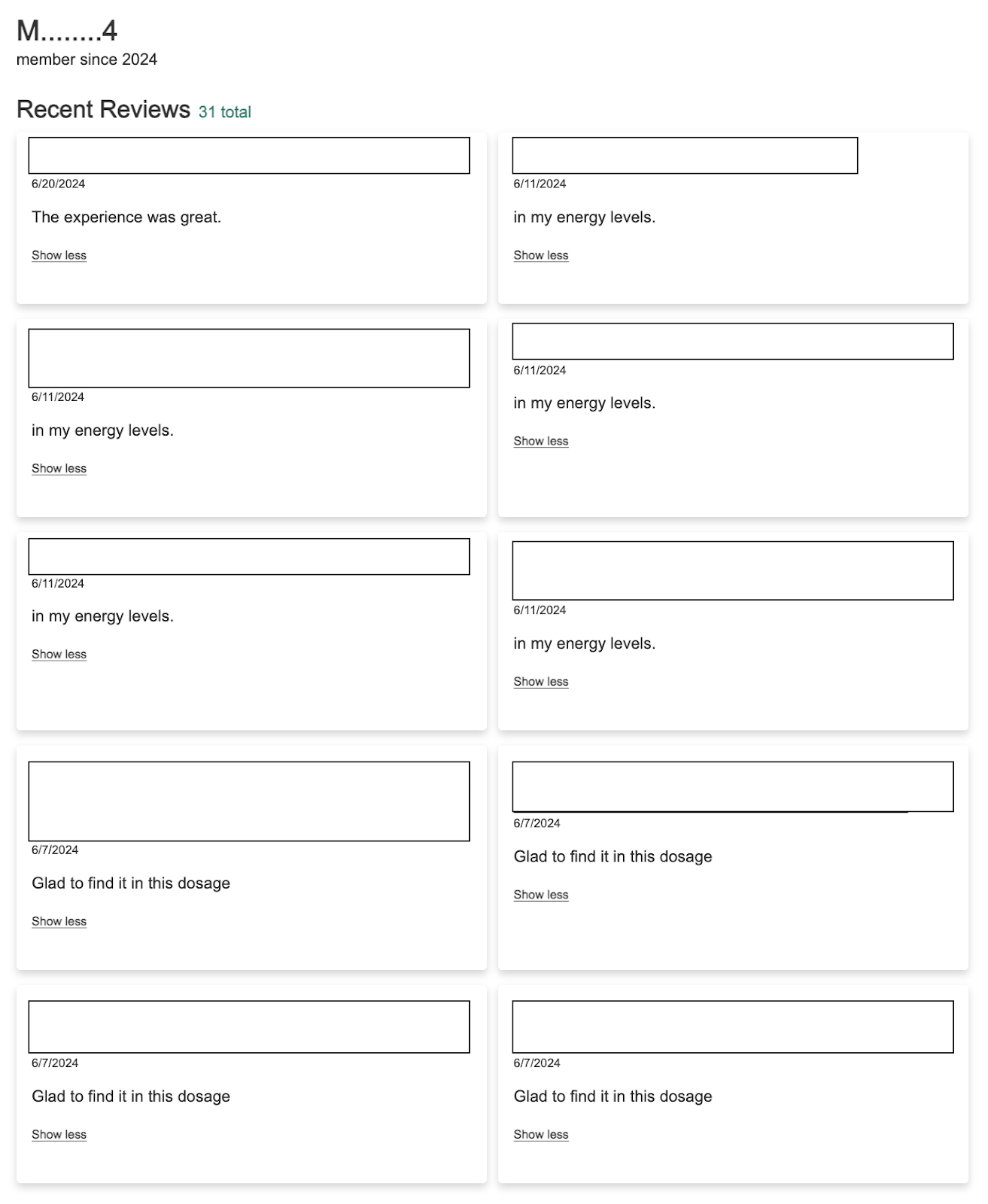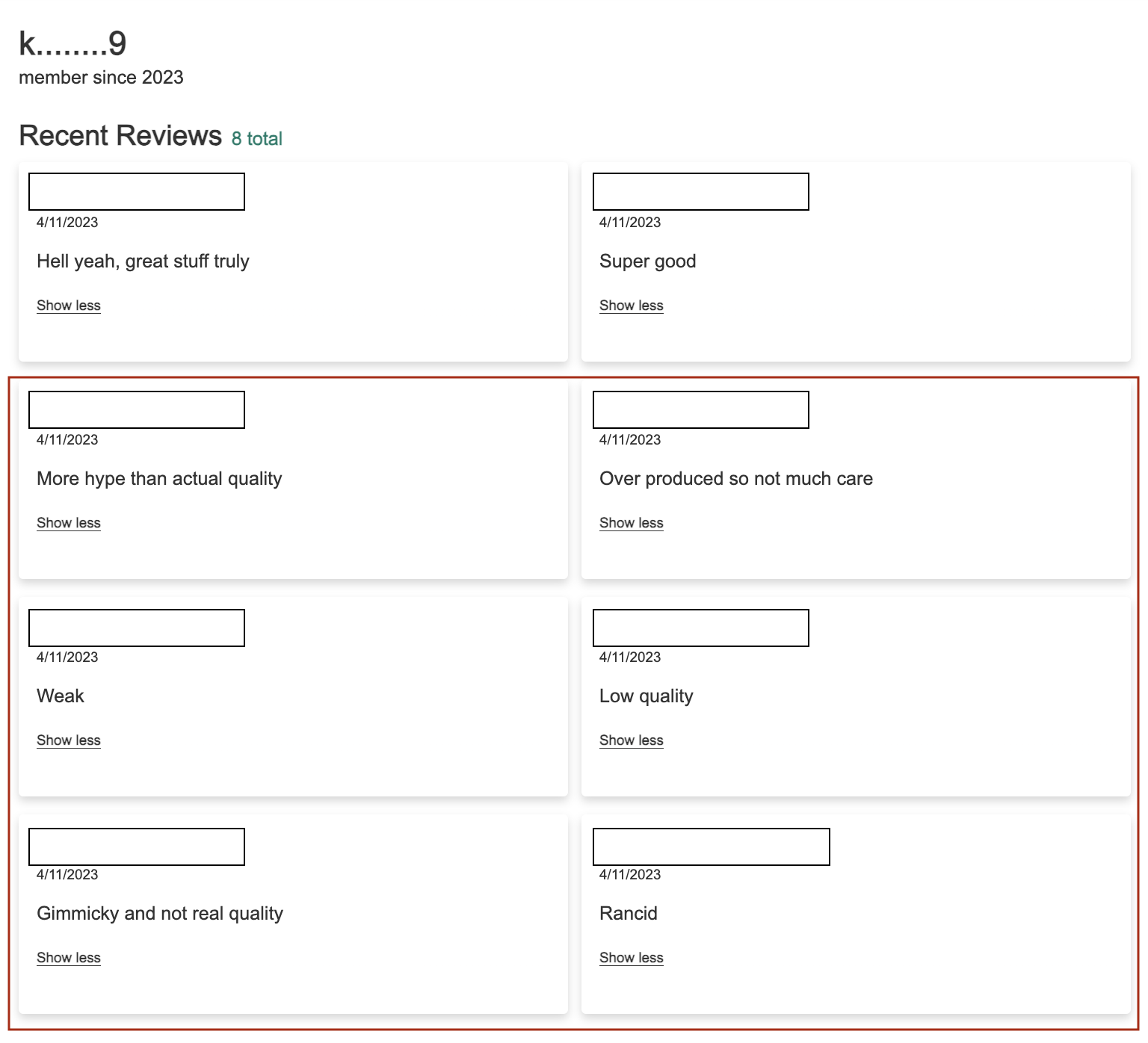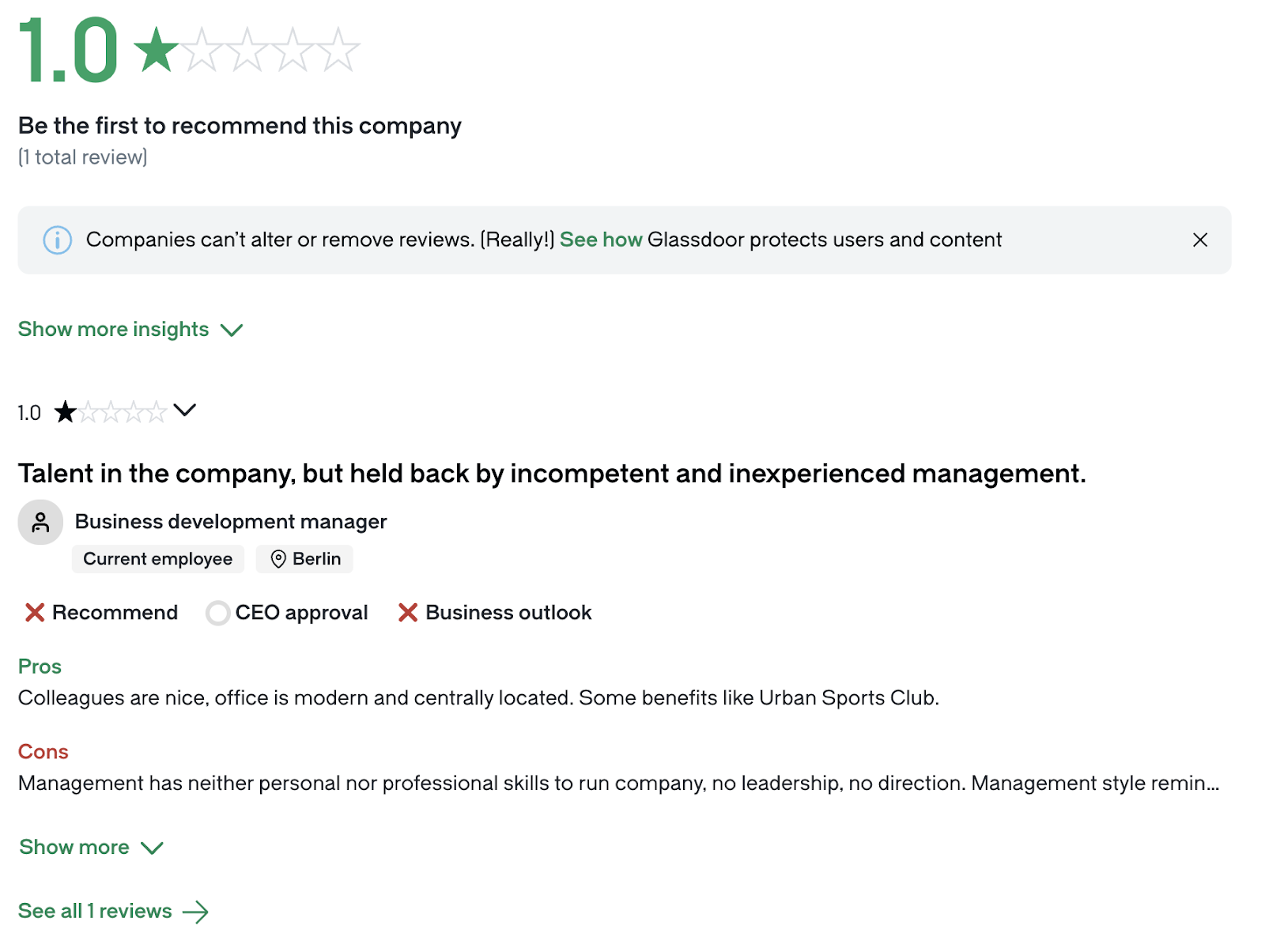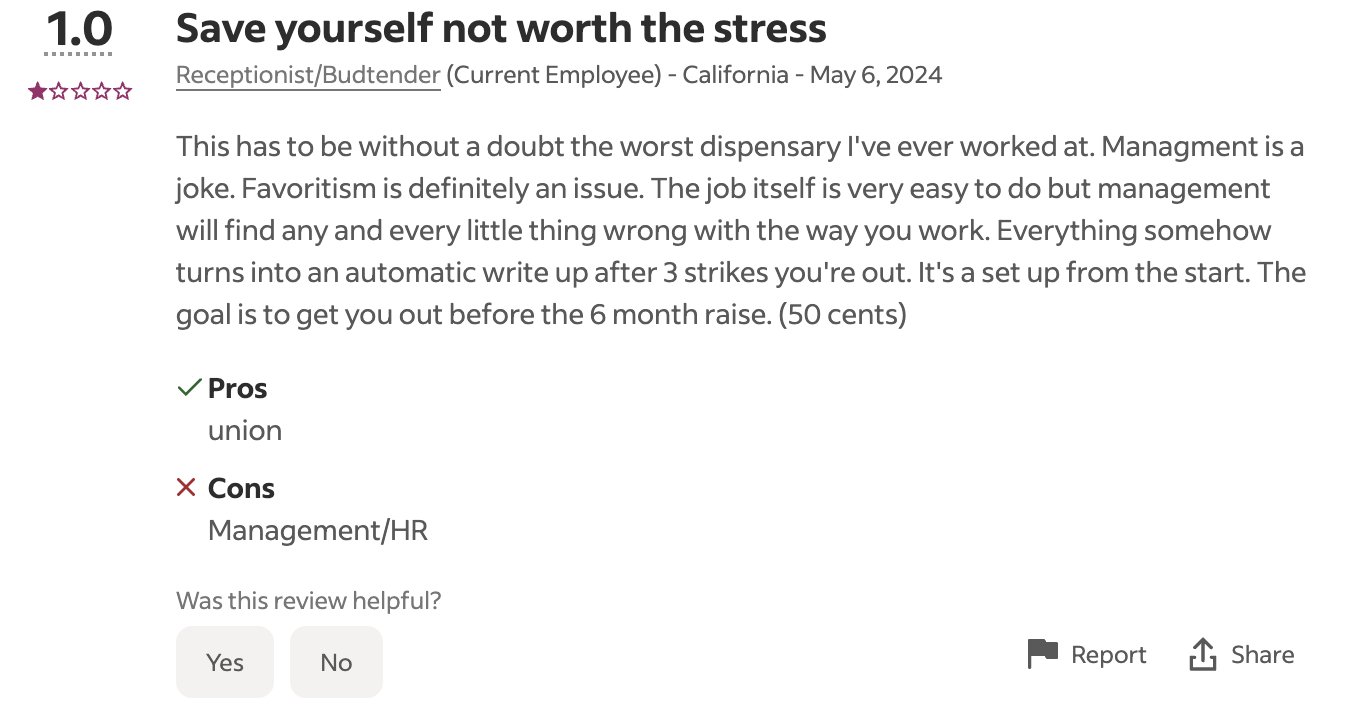It’s hard to remember just how marginalized cannabis was until recently - limited to forums and small social media groups, or even the dark web and private chats, depending on where you're from. The gradual destigmatization and popularization of cannabis have brought this all into the public space. Although the industry has been moving in this direction, it wasn’t fully prepared.
Let’s look at the most common challenges and threats that cannabis businesses face with online reputation and how to improve it.
After all, a good online reputation is not just about image and customer trust but also drives higher sales, investor confidence, and social acceptance.
-
Review Websites
Let’s start with something simple - review websites.
Currently, moderation on these platforms is often mediocre, which means that top ratings often go to those who write fake reviews rather than truly popular brands.
This system makes it harder for quality local brands with real customers to be seen.

An example of fake positive reviews: all reviews are for a single brand, on different products, but only use two distinct texts.
Another problem is fake negative reviews, which can come from competitors or just haters.

An example of fake negative reviews: all negative feedback (only in the red frame) was posted on the same day about different products from the same brand.
The third issue, which addresses the second but not the first, is that platforms are very responsive to brands and remove negative feedback. This allows dishonest companies to remove all complaints, even those that are truly deserved.
Solution: more thorough moderation on these platforms, improvement in brands’ digital culture, and raising consumer awareness of these issues.
-
Negative News and Legal Issues
The second and most dangerous reputation problem is the large volume of negative news related to legal issues: recalls, license denials, testing problems, production violations, counterfeit products, and health issues. Poor-quality products or services are, at best, detected in testing, and at worst, in the hospital. Cannabis companies appear in negative news more often than alcohol brands!
Of course, the issue isn’t that cannabis is harmful, but rather the extremely rapid pace of industry growth, the lack of experts, numerous mistakes made in rushing to production, attractiveness to fraudsters and greed.
Other fast-growing sectors like cryptocurrency, NFTs, and AI have also faced negative press, but at least those issues are virtual, not in our lungs!
Solution:
When the initial rapid growth slows, time will bring some adjustments - professionals will gain experience, fraudsters will take their share of profits but will eventually be exposed.
In the meantime, companies should learn crisis management skills from other challenging industries and know when to address issues openly. Among consumers, it's important to spread information about dishonest producers and labs, teach them how to spot fraudsters, and promote websites with reliable product news.
-
Poor HR Branding
If you've ever searched for a job in the cannabis sector on sites like Glassdoor or Indeed, you may have noticed that many companies have very low ratings. Surprisingly, this trend is global!



The number of poorly rated companies is higher than in other industries, and this applies not only to physical and low-paid jobs but also to dispensaries, pharmacies, retreats, consultancies, online services, etc!
Another specific risk is posts with complaints from former employees on LinkedIn, where user-engagement algorithms prioritize user-generated content with high engagement - and nothing attracts reactions like a workplace horror story!
The problem, of course, lies again in the youth of the industry, as well as its recent illegality and resulting lack of transparency.
Solution A: Since we’re talking about online reputation management, we’ll leave the BBQs and pizza parties for other authors.
The reality is that many people now spend much of their time online, dedicating as much time to their virtual personas, likes, and content as they do to real-life interactions. For some, it’s even easier to communicate and exist online than in the physical world...
How to achieve this: create an internal online communication channel with clear and regular updates (not just a monthly email). Mention and praise employees on social media (so they can share it proudly with their online friends), and create relatable, personable content. Working at a company that behaves openly and «on the same level» allows employees to not only feel as part of the team but also feel more confident through greater transparency and understanding of internal processes.
Solution B:
Provide clear and realistic job descriptions, and share work-life insights online. The more transparent and detailed you are online, the more prepared and suitable candidates you’ll attract - perhaps fewer, but more aligned with your needs.
To 70% of Job Seekers, an Inadequate Online Presence Is a Red Flag, according to 2018 statistics. Imagine what that percentage is today!
-
Communication with Customers and Users
Customers can be found across various social networks and platforms, even those you might prefer to avoid entirely.
The biggest risk is that, while you ignore them, they may occupy space in your Google search results or become highly popular within a certain social network.
Blatantly negative discussions can drive away consumers and significantly damage both reputation and sales.

Negative discussion on Reddit appears right at the top of the search results.
The second issue related to communication is closely tied to the quality of the communication itself. Consumers want to make informed purchases, and when they have questions, they ask brands directly. When they have praise or complaints, they might leave reviews on the product or brand page. However, in the cannabis industry, responses are uncommon, even on brands' social media pages or claimed brand listings.
Why is this a problem? Imagine a silent, unfriendly budtender in a dispensary who doesn’t offer product advice, doesn’t engage in small talk, doesn’t respond to thank-yous, and doesn’t thank customers for their purchase. Good online communication is just as important as high-quality offline service - it helps customers make more appealing and, most importantly, informed purchases.


A brand could win over a few extra customers by offering helpful tips on cleaning the device or providing information about its safety.
Solution: Ideally, maintain and manage accounts on all popular social networks, fill out listings and maps, monitor them, engage with users, respond to questions and complaints, thank customers for purchases, positive mentions, and reviews. Interact as if you’re speaking to them personally!
Or at least, periodically search your brand name on social networks (even on TikTok and Twitter, whether you like it or not), as well as on Reddit and Quora (a must - they rank well) and listings for new reviews and comments. If needed, create an account and respond.
Not interested in too much public interaction? Promote closed communication channels: messengers, email, and direct messages.
-
Lack of Online Presence
It may seem obvious, but it’s important to remember: people shop online, so relying solely on attractive packaging isn’t enough. Additionally, many people check products and locations online before visiting in person to save time - a part of the trend toward conscious consumption. A lack of information or reviews may discourage potential customers and create mistrust.
Solution:
Be online. Provide detailed and unique descriptions of products and services on your website, fill out all possible listings and maps, maintain a blog and social media, invest in PR, attend events and showcase them, encourage customers to share their experiences, and tell your story.
You don’t have to do it all at once; starting with a few key areas of focus is already a great step.
Conclusion
Cannabis businesses vary widely, and geography also plays a role in their differences. However, certain patterns and mistakes are common across the industry. Let’s work on these mistakes to build better businesses by creating a stronger reputation for our products and the industry as a whole!
Canntastic is here to help you on that journey. Let us manage your online reputation while you focus on what you do best - growing your business